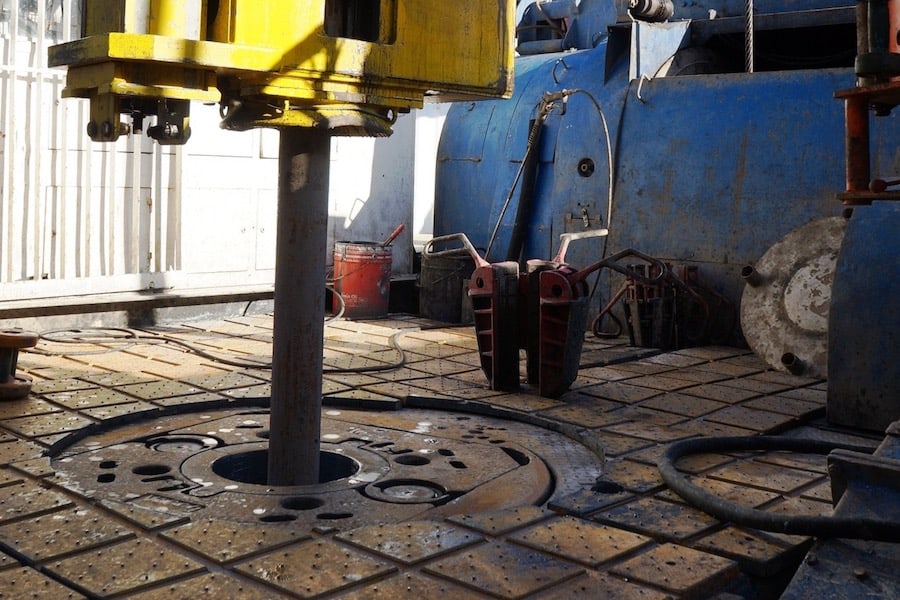Working on an offshore oil rig or platform is a unique experience
Note: In this article, we’ll use the word ‘rig’ and ‘platform’ almost interchangeably, but a rig does the drilling, and a platform does the pumping. Living on an offshore oil rig or a platform, or in living quarters on a vessel attached to a rig, all have similar challenges.
Offshore oil fields represent a substantial portion of the world’s total crude oil output. In 2015, this portion was 30%. Now, it is in all likelihood more significant with several recent discoveries made in Brazil, Norway, and Guyana, among others. Offshore oil activity is growing, and so is a demand for the workforce on the platforms that pump it out.
If there is one thing that everyone will agree is right about work on an offshore oil rig or platform, it is that this kind of work is the opposite of boring. When you work on an offshore platform, you work where you live, and you work long, busy hours. The work is often challenging, and it can also become instantly dangerous when the weather changes. But it could be highly rewarding work, with solid career growth opportunities.
Before you leave
There is a set of minimum requirements for those interested in working offshore in the oil industry. These have mostly to do with physical and mental endurance. An oil platform operates around the clock, and while the work is divided in shifts, these shifts are long, so you would need to be able to last for 12 hours straight and even more than that if you are just beginning.
To apply for the most menial job on a platform, you need to be at least 18 years old and have a high school diploma or an equivalent education certificate. Smoking and drinking are banned on offshore platforms, so the absence of these habits is an advantage.
Physical fitness is a must as a lot of the work on a platform, especially for beginners, it involves handling heavy machinery and carrying loads. Mental fitness is also a must because the typical length of an employee’s stay on a platform is two to four weeks with no going back to the shore. That may not sound very long when you first hear it, but it is quite an extended period.
Survival training
Before you begin your first hitch, or assignment, on an offshore platform, you will need to take a survival course because of the many inherent dangers of work offshore, including harsh weather, combustible materials, and the always present risk of equipment failure.
The oil and gas industry takes its health and safety seriously so it has developed the Basic Offshore Safety Induction and Emergency Training Course, or BOSIET, which you would need to complete before you board the helicopter to the platform. The course teaches things such as surviving in a helicopter crash, providing first aid, surviving at sea, and operating a lifeboat. Taking the BOSIET course could cost anywhere from $400 to $2000 depending on the location.
Working on an offshore oil platform or rig
One two- to four-week stay on an oil platform is called a hitch in the industry. Shifts are called tours. Veterans in offshore work advise that you plan ahead before you leave, making sure your family has the contact details of your employer. Your employer also has the contact details of your family in case of an emergency. That is important because only the senior staff on an oil platform has unlimited access to a phone offshore.
Mentally preparing for hard work in shifts is also essential. A typical tour begins with a pre-tour meeting about half an hour before the start of the tour where the people who will be working this tour discuss the tasks of the day or night. After the tour, there is a handover meeting, pretty similar to how shifts work in hospitals with one team briefing the next one about what happened during the day. Outside tours, new employees also take part in training and safety meetings, which further adds to the workload.
Top risks
The first and foremost risk on an offshore oil platform is fire. Both oil and gas are flammable, so fire emergency response is a big part of the survival training you will undergo before you can work on an oil rig.
Besides the liquids and gases that get produced from oil platforms, however, there are also flammable chemicals used during drilling, and these chemicals are also a fire hazard.
Then there are the moving parts of all the machinery that is necessary to drill for oil and gas. (Then pull that oil and gas out of the ground and transport it). As with every sort of machinery, this equipment could injure or kill if you are not careful.
The well itself could be a hazard, too, as tragically evidenced by the Deepwater Horizon disaster. Despite significant advancements being made since then in ensuring the safety of a well, the danger of pressure building up and blowing out the well is always there.
Fatigue could also become an issue when you are not used to the intensive work schedule and the limited opportunities for distraction from work during your hitch.
Living conditions
Few platforms can offer their personnel single rooms to stay in. Space is tight, so you will almost certainly need to share a room with one or more people. Bathrooms get shared among several rooms. In such close quarters, veterans advise, you must respect other people’s personal space, such as there is of it.
Keeping your space tidy and making sure you don’t have to go back to the room after your tour begins because you have forgotten something, risking to disturb the co-worker who is resting after their tour, is always a good idea.
Because of the nature of work on an offshore rig, cooked food is available around the clock, with fresh products flown in by helicopter regularly. New platform workers often find with surprise that the food is not just fresh but also good. In essence, oil companies seek to make their workforce’s living conditions as comfortable as possible in the areas where this is manageable.
Free time on the rig
Despite the tight space oil platforms also have various amenities such as gyms, pool tables, TV and even cinemas. As with the food, it is essential for the people working on the platform to have the opportunity to unwind and relax, so employers are providing the means.
There is an internet connection on oil platforms but, again, it pays to be mindful of other people’s needs to communicate with their families and limiting the time you use on Skype or Face-Time, so others get the chance to see their families, too.
Mindfulness is as important as mental and physical fitness on a platform. Friendships for life are often made during hitches when people respect each other’s space and needs. Failing to do that could make a hitch a much more unpleasant experience despite the excellent pay.
Career opportunities
It’s no secret there is healthy competition for job vacancies on oil platforms because offshore jobs pay a lot better than work onshore. There are benefits, and there is the opportunity for a quick rise through the ranks, which makes these jobs even more desired. Yet you have to be ready to start from the bottom.
The most basic—and most physically demanding—position on an offshore oil rig is that of the roustabout. The job of the roustabout is the one with the heaviest lifting and most prolonged work hours, and it also pays the least. Yet as a roustabout you will acquire a lot of valuable skills in drilling equipment maintenance, for example, and electrical systems, as well as expertise that would then open up more specialised positions.
Next on the ladder is the roughneck. Roughnecks operate cranes, run drilling engines and pipes, and are in general given more skilled tasks and paid more for doing them. Several years of work as a roughneck are enough to pass to the next level, which is that of derrick hand, or derrickman.
The Derrick hands are responsible for the drilling mud and the mud pumps. If they stay in the job and have the ambition, they could further advance to drillers. That is the first supervisory position in the hierarchy of an oil production team, with the driller overseeing a team of roughnecks.
Wellhead pumpers also fall within this middle salary class. They are the people who operate the equipment around the wellhead and monitor the flow of oil. They also have supervisory responsibilities for roughnecks.
After the driller is the toolpusher, who oversees all roughneck crews and also does administrative work, toolpushers earn the highest salaries among the manual labourers on a platform to reflect their responsibilities.
Further up are the specialists with degrees in petroleum engineering, geoscience, marine engineering, and other relevant areas of knowledge. Essentially, the system on an offshore oil rig is a meritocracy. The salary rises in tune with the responsibilities and expertise an employee has. Geologists and roughneck supervisors make more than roustabouts and wellhead pumpers, and reservoir engineers make more than geologists. Production managers, in turn, because of their many responsibilities, make more than reservoir engineers.
The best-paid position on an oil rig, however, is that of the offshore drilling consultant. People in this position primarily oversee all operations on the platform daily, from drilling and production through contractor management and the ordering of supplies, all the way to safety monitoring and hiring.
Conclusion
Work on an offshore rig or platform is undoubtedly challenging, even for the senior staff. Limited personal space, a prolonged absence from friends and family, and a taxing work schedule are not for everyone. Yet for all the challenges, work on an offshore platform also offers opportunities for a lucrative career. There’s a marked path upwards, as long as you have ambition and the readiness to work hard, every step up the ladder.





Is there ever a reason skipping is forbidden on some oil rigs? Are there independent oil rig fourman that are responsible for providing internet service for their crew. You can respond to this directly at [email protected]
Do they have plenty of Extra life persevere jackets for everyone on the rigs for Safety reasons
Everything related to health, safety and the environment are extremely important for all oil companies. Plenty of life jackets would be a very basic requirement and an easy task to fulfil.
I have a degree in chemical engineering and also diploma certificate in Offshore procedures basically on Helicopter safety and escape techniques, sea survival, and fire fighting and self rescue…yet I do not have a working experience, I don’t mind if I can start as a roustabout offshore as I am more than willing to start a career here.
I want go to work on offshore side.
Is there Female Companionship on an Oil Rig?
Well, employees and contractors can be male or female, and they could be described as companions for each other. If you mean companionship as similar to conjugal visits to prisoners then no, that doesn’t seem plausible since everyone setting foot on a rig needs their official training and certification.
that’s right, but how you can started there , there is no chance for people who working in the on shore rigs.
I’m retired oilfield. Started on land rigs then “graduated” to offshore. Safety is the word. Without safety and exceptional equipment, there is no job or rig. I was on a rig 50 miles from Deep Water Hirizon when she perished. Everybody knows why. I was a driller so I won’t comment. My prayers and thoughts are with those still out there today. Cesar, I started on land rigs. A lot of us have. It always possible.
I have worked offshore before I am a team player hard worker and dedicated to the job and task at hand. Would love to interview for working offshore.
I’ve started at the bottom on land Riggs T-4 and RD 20s and 23s air Riggs that drilled up to 5000 feet worked my way from worm to tool pusher in the 14 years I was out there but took a non violent federal prison sentence few years back I’ve always wanted to worm off shore but im 47 this year can I still be considered fir hire